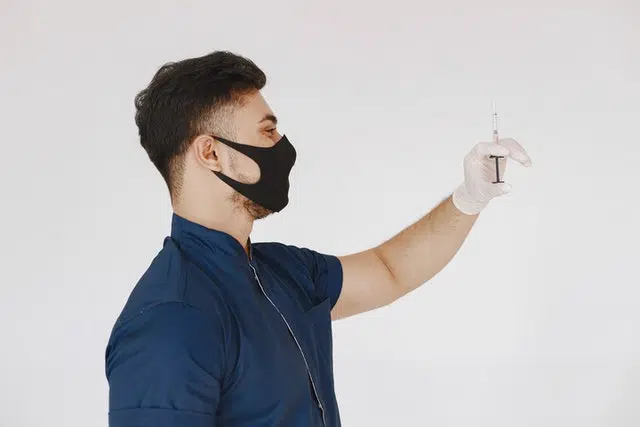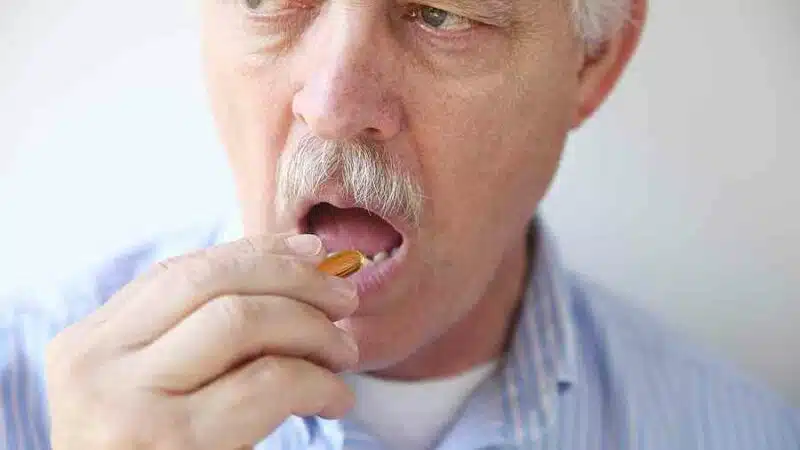Why Are More Men Now Injecting Testosterone

Private clinics are selling young (and older) men unnecessary testosterone injections, which can lead to infertility and blood clots and the trend is growing.
As well as claiming to restore health and vitality, the jabs may also shut off the body’s natural production of testosterone, potentially resulting in a host of complications.
This is what’s concerning, as its use soars among young men who want to emulate the muscular bodies seen on shows like Love Island and indeed older men who wish to recapture their youthful vitality.
This growing trend for testosterone replacement therapy are about to be branded ‘dangerous’ by doctors from the Society For Endocrinology . Imperial College London’s male reproductive health expert, Channa Jayasena, said: ‘Male reproductive health is becoming increasingly unwell as a result of these drugs.
Both sexes produce testosterone naturally, but men have more of it. The hormone is produced in the testes in men and plays a number of roles, including maintaining sexual function, producing sperm, distributing fat around the body, growing bone and maintaining healthy blood vessels.
Hypogonadism is a condition in which testosterone is deficient, causing late puberty, abnormal genital growth, and gynaecomastia, or excessive breast growth. Injections of testosterone are crucial to restoring these men’s testosterone levels.

The Royal Victoria Infirmary’s Dr Richard Quinton, a consultant endocrinologist and a Newcastle University researcher, explains that these tablets are used in a small minority of patients without testosterone production, which can have serious health consequences.
Nonetheless, it’s marketed as a way to improve gym results for young healthy men, as well as for older men wanting to reduce middle-age spread.
Blood clots, mood disorders, and other fertility-related complications can occur with testosterone replacement therapy, including erectile dysfunction and shrinkage of the testicles.
We learned about one patient who suffered ‘extreme shrinkage and unbearable pain’ in his testicles after stopping testosterone treatment three years ago. To ease his discomfort, he will need surgery to cut the nerves in his groin.
Dr Jayasena says: “It is very hard for people to stop taking testosterone once they start taking it because it makes them feel like supermen. Drug dependence can occur in patients.
According to recent analyses, the market for testosterone injections and creams is predicted to be worth nearly £2 billion by 2027, up by 20 per cent over the past decade.

The ‘Love Island effect’ has spurred the growing demand for supplements in the UK – young men trying to emulate the physiques of ITV2’s male contestants on the reality show. According to Dr Jayasena, the super-muscular look made popular on Love Island is definitely driving this trend. Those chosen for the show have washboard abs and huge biceps, along with exceptional athletic physiques.
‘However, young guys who watch this begin to believe it’s normal, thinking that they’re deficient in something because they lift weights and work out, but they don’t look like that.
Suddenly, a clinic with seemingly reputable doctors shows up telling you that you aren’t getting results in the gym because you aren’t producing testosterone.
The treatment has become increasingly popular on high streets and online in recent years. Advertisements often feature men with bulging arms or six-packs.
Robbie Williams, a singer who draws 11 million listeners to his podcast about men’s issues, and podcaster Joe Rogan are also reportedly happy customers.
Positive reviews are posted on clinic websites by patients thanking ‘transformative’ testosterone for getting them into the best shape of their lives. ‘My hair is thicker, I have a beard (no more baby face), and I have abs again.’ writes a 27-year-old.
The 30-year-old man says he runs 30km each week and does a lot of body exercises. Another says he benefits from going to the gym and meeting women.
In other cases, middle-aged men use the hormone to hang on to their youth. After two years of treatment, a 58-year-old man’s libido and body fat levels have returned to 25-year-old levels.
Carruthers, who prescribes testosterone treatment at his London-based Centre For Men’s Health, says: “We used to treat mostly people in their 50s and 60s, but now we get calls from people in their 20s and 30s.”
There may also be underlying causes, such as pituitary and prostate cancer, which can affect testosterone production in patients.
Private doctors also believe in ‘manopause’ – when sex hormones decrease in middle age, causing energy slumps and sexual dysfunction. Only a small percentage of men reach testosterone levels low enough to cause symptoms as they age, experts say.
There are some studies that suggest 30 percent of men over 50 suffer from this disease, while other, better-quality studies indicate two percent,’ says Prof Bouloux. It’s more likely that ten per cent of these men have underlying conditions causing their problems, and treating them should be the priority, rather than offering testosterone.
Certain medications and brain injuries that affect the pituitary gland – the gland that controls testosterone production – can affect the balance of hormones within the body, as can obesity and type 2 diabetes.
Taking high doses of synthetic testosterone, which can lead to dramatic muscle growth, is discussed on online forums by bodybuilders who take anabolic steroids.
Using other drugs to mitigate the effects of steroids is called stacking by bodybuilders, according to Dr Quinton. There is no reputable guideline that endorses these protocols. As well as reducing libido, Clomid may also increase the risk of thrombosis, while HCG boosts breast development.
Others, however, prefer to see testosterone replacement therapy available to a broader audience.
Dr Mike Kirby, Professor of Primary Care and former treasurer at the British Society For Sexual Medicine, says that private clinics will always spring up in order to fill a gap in NHS treatment
. Despite the fact that testosterone is ‘inappropriate and might cause serious harm’ for younger men, there is a ‘definite unmet need’ in older men, he says. There is a lack of knowledge among general practitioners about testosterone deficiency, which contributes to poorly managed testosterone deficiency in general practice. The testosterone therapy would benefit older men suffering from sexual problems, but they do not receive it. Patients cannot be blamed for trying the private sector if they are unable to get help from their GPs.
A testosterone injection may not be such a bad idea even if obesity or diabetes are the underlying problems.





